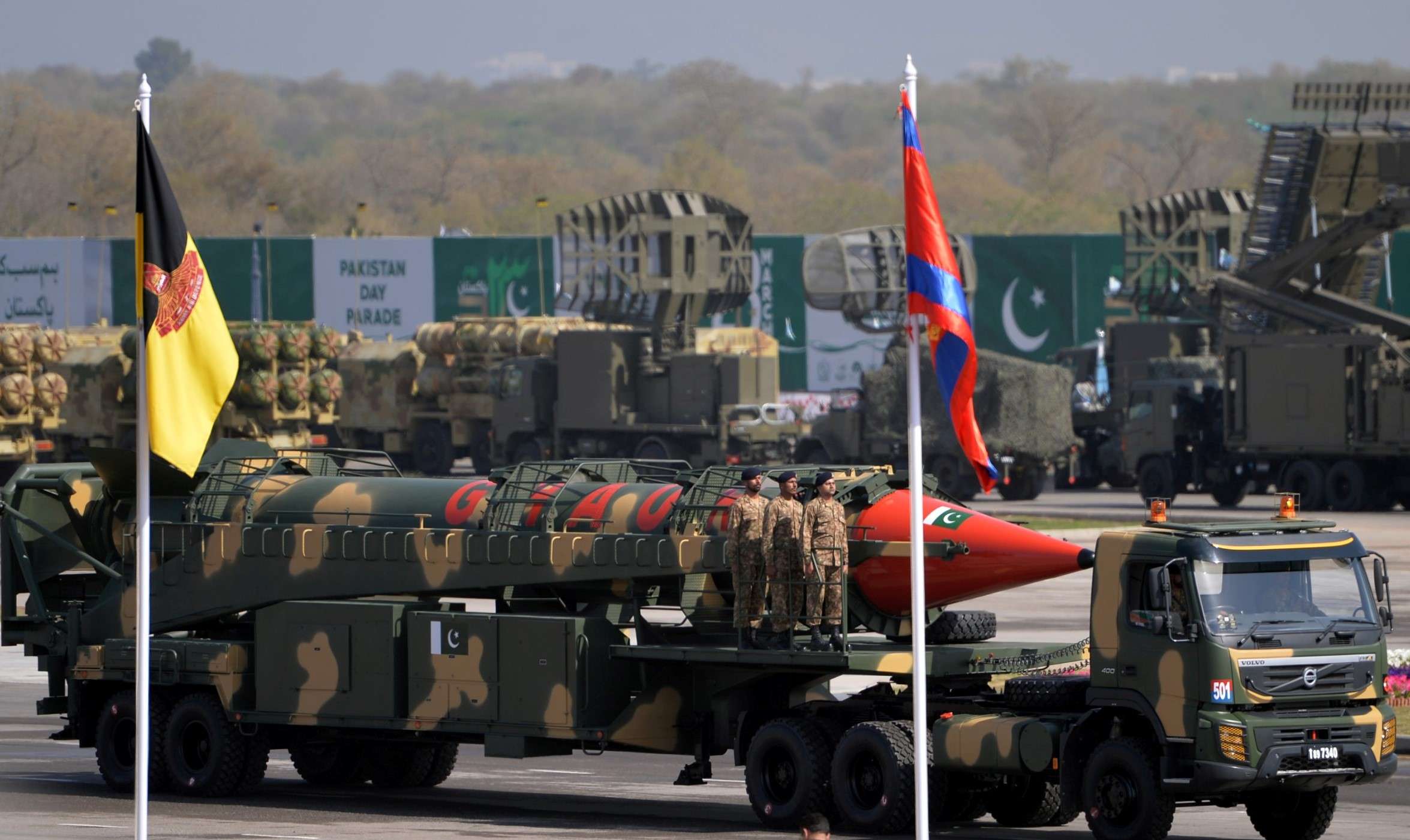The global debates of nuclear politics cannot be studied without discussing the South Asian regional security environment under the nuclear shadow. The governments of India and Pakistan decided to test their nuclear devices in 1998 and transformed the regional political order of South Asia, where the multileveled hostility between two nuclear-armed neighbours has now become the gravitational point of regional politics. The hostile interaction between India and Pakistan has pushed South Asian regional politics towards an intense security environment while multiplying the mainstream points of disagreements between New Delhi and Islamabad. The history of the India-Pakistan rivalry has gone through different phases after the partition of the subcontinent. In 1998, the hostility between two territorially adjoining South Asian nations witnessed a significant development in the form of a regional nuclear race initiated formally in 1998 when the leaders of both hostile nations preferred to announce their nuclear weapon capabilities.
The testing of nuclear weapons changed the regional strategic outlook of South Asia under the influence of nuclear deterrence. The deterring impacts of nuclear weapons between India and Pakistan prevented the chances of war in the region and introduced the notion of strategic stability. The stabilizing role of nuclear weapons allowed the South Asian nuclear contestants avoid direct confrontations akin to the wars of 1965 and 1971 and compelled them to remain strict in defence of their nuclear weapons.
The India-Pakistan decision not to become the members of the International Nonproliferation Regime (INR) raised critical debates in the international community on the South Asian arms race and placed India and Pakistan under serious nonproliferation debates. The initiation of this nuclear competition between India and Pakistan made the probability of war less likely in the intense regional security environment.
The governments of both states developed nuclear weapons and started relying on their deterring role without estimating the fragile status of regional strategic stability in the region where various factors undermine the deterrence role between two hostile neighbours. The possession of nuclear weapons by India and Pakistan has added another chapter in the history of the South Asian subcontinent, where the perpetual rivalry between two nuclear-armed states has the possibility of increasing hostility. The contesting strategic aspirations of both states have convinced strategic thinkers to prefer to secure an advantageous position in the regional strategic competition while pushing the other towards a disadvantageous position.
In this debate of ongoing arms race between India and Pakistan, the Indian ambition to become a hegemonic State in its home region leaves extremely negative impacts on the status of nuclear deterrence in South Asia. Presently, New Delhi’s quest for acquiring various advanced weapon systems to empower war-fighting capabilities of its regular armed forces is the key factor that undermines the role of nuclear deterrence in the region. New Delhi’s ambition for integrating modern warfare technology with its conventional war-fighting capabilities has led the Indian government towards various advanced nations, all Indian governments have developed several frameworks of cooperative bilateral engagements with several states domains, parallel to aligning its domestic weapon industry with the international markets. A long list of New Delhi’s defence deals and security agreements with different nations validate that the Indian government is determined to bring advanced weapon systems to South Asia without estimating their impacts on the regional security environment. The formal military documents of the Indian Army and the defence-related policy papers of New Delhi have also accepted the growing significance of advanced warfare technologies in Indian defence planning. New Delhi’s security policies have started emphasizing on the application of Artificial Intelligence (AI) technology in the weapon industry. Intending to keep its regular armed forces updated and efficient in performing various military operations, the leading defence planners have created many indigenous AI-specific digital platforms. India’s formal document i.e. the Land Warfare Doctrine 2018 has also accepted this significance. This doctrine focused on the importance of integrating the AI-technology and robotics systems into the war-fighting capabilities of Indian armed forces. New Delhi’s increasing interest in AI-technology has provided it with various automated weapon systems where the Indian defence industry has developed several unmanned military devices.
The prevalence of such hi-tech weapon systems in Indian mainstream defence planning is directly linked to the regional security environment of South Asia under the nuclear shadows. While the arrival of these modern warfare technologies intensifies the India-Pakistan hostility, it also damages the regional strategic matrix between the two nuclear neighbours. There are a number of security issues, such as the fragile bilateral inter-governmental interaction between New Delhi and Islamabad and the unprecedented growth of their contrasting strategic positions. The Indian government is determined to implement its regional hegemonic ambitions in South Asia, whereas the government of Pakistan has decided to counterbalance the violent policies of India cemented in different ferocious actions.
These policies have introduced various strategic initiatives in the territorial and maritime affairs of South Asia to support New Delhi’s strategic vision for dominating its home region without estimating the impacts of these strategic initiatives on broader regional politics. New Delhi’s constantly growing reliance on modern weapon systems and the application of disruptive technologies in the defence domain has spurred an unending arms race in the region. Different warfare technologies pose high risks to chances of an escalation between two nuclear-armed rivals which could push both states to act beyond the stabilizing conventional role of nuclear weapons. In this way, there is a need to realize the sensitivity of India-Pakistan strategic competition in which New Delhi is bent upon upgrading its traditional war-fighting capabilities with modern warfare technologies. This scenario also demands serious responses from the international strategic community because the global responses could support the vision of peace and stability in the region by not condoning New Delhi’s increasing reliance on modern warfare technologies. Such efforts by the international community could support the status of a nuclear deterrence in the nuclearized region.





Mashallah Mashallah ♥️ 😍 May you have success in every way of life ♥️ InShaAllah